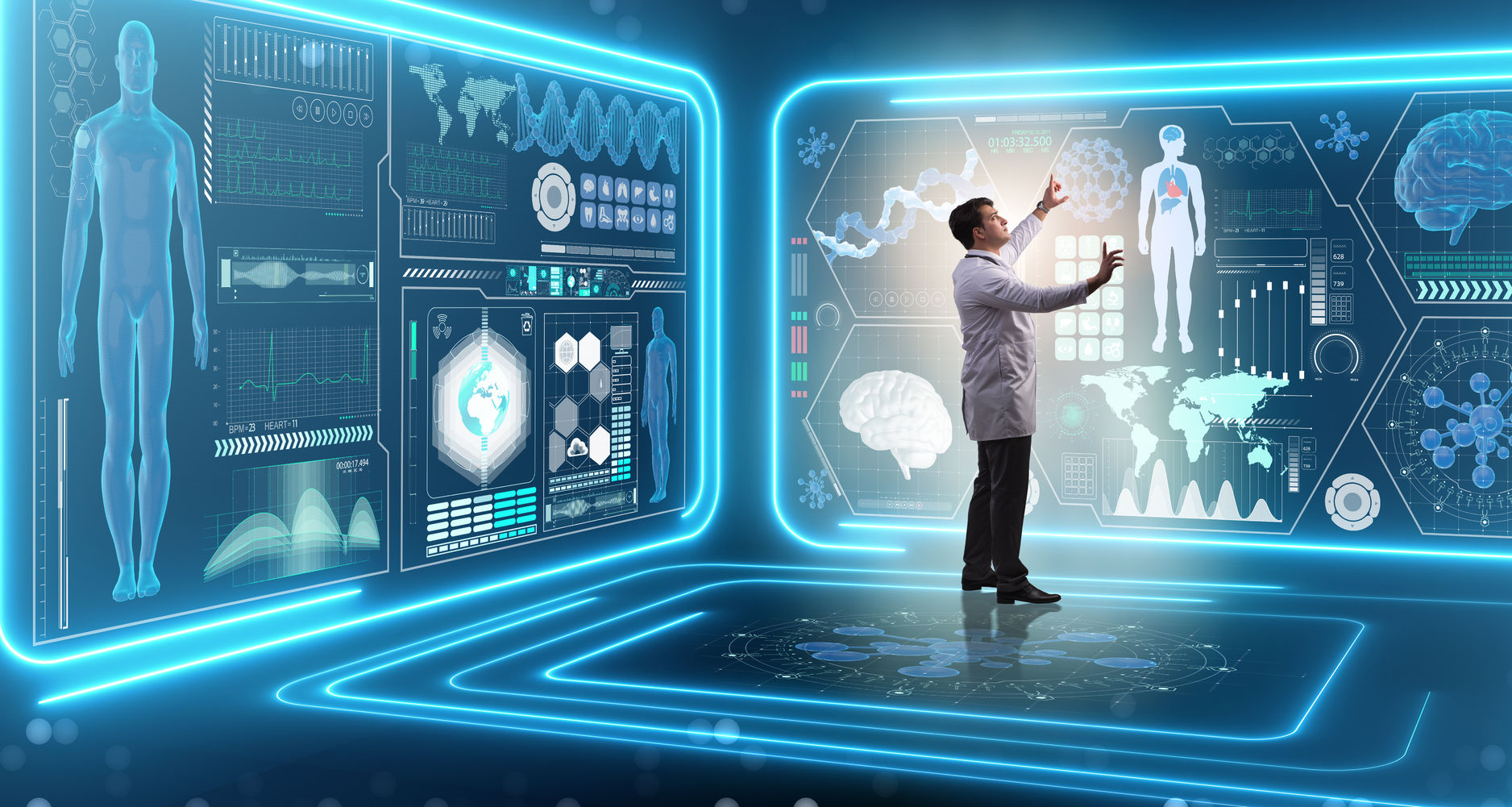The introduction of artificial intelligence technologies in medicine is one of the main trends in the healthcare world. AI and neural networks can fundamentally change the entire world of medicine: transform the diagnostic system, promote the development of new drugs, improve the quality of medical services in general and reduce costs. In the future, the possibilities of AI are almost limitless.
Neural networks are actively used today in the development of intelligent systems due to their ability to learn. The mechanism of operation of artificial neural networks repeats the principle of biological ones. In a digital version, a neural network is a graph with three or more layers of neurons that are interconnected.
In the learning process, input neurons receive data, process it on the inner layer of the neural network, and the results are output. If the result obtained during the training process does not suit the researchers, they change the weight of the connections and retrain the network. At the same time, the success of the process and the reliability of the results depend on the amount of input data – the more of them, the better.
Neural networks can be applied in medicine in many ways. For example, a patient makes a request “headache”, “high temperature”, “chills”, and the neural network analyzes thousands or millions of cards of other people and, based on their diagnoses, can assume a disease of the person who made the request.
Naturally, the neural network cannot be 100% sure that the patient has, for example, the flu with the above symptoms, but it assumes such a diagnosis in accordance with the conclusions of doctors on other medical records. Today, many technologies for medicine have been developed based on neural networks, and some of them are already actively used in clinics around the world.
The development of AI today is a priority for many countries around the world. If we consider the introduction of smart systems in the medical field, then, first of all, their benefit will be to increase the accuracy of diagnosing various diseases.

The practice and experience of a doctor may not be enough to timely identify a particular problem in the human body, while a neural network with access to a huge amount of data, advanced scientific literature and millions of case histories will be able to quickly classify any case, correlate it with similar problems in other patients and suggest a treatment plan.
Artificial intelligence can take on all the tasks that distract medical staff from their main job – saving human health and life. Programs can select wards, search for available equipment, monitor the condition of medical equipment, etc.
AI today often shows higher accuracy in making diagnoses and performing other tasks than a doctor. If the doctor and AI work together, then the probability of errors is reduced almost to the level of statistical error.
Investments in AI in medicine are extremely important today – they provide an opportunity to develop the field, and in the future, completely change the entire face of healthcare in the world, make it more reliable, efficient, comfortable and safe for humans.
However, not everything is going smoothly at the moment. The introduction of artificial intelligence systems in the medical field has problems and disadvantages that should not be forgotten. There are several barriers to AI in medicine.
The creation and implementation of artificial intelligence systems requires serious funding. The high cost is largely due to the need to train the program, adjust it to the data accumulated in a particular medical institution. In addition, it requires special maintenance, which will require a qualified and motivated team. And last, but not least, for efficient and quick work of AI, serious computing power is needed, which may simply not be available in an ordinary medical institution.
Despite the serious difficulties of implementing AI systems, the prospects for their use encourage us to look for solutions to overcome any obstacles. Highly qualified specialists from different parts of the world, talented researchers, excellent mathematicians, doctors, representatives of pharmaceutical companies, etc. are constantly working on the development of this area. However, despite the development of AI, the role of a person in the field of healthcare still remains a leader.
References:
https://www.ibm.com/topics/artificial-intelligence-medicine
https://healthitanalytics.com/news/top-12-ways-artificial-intelligence-will-impact-healthcare
